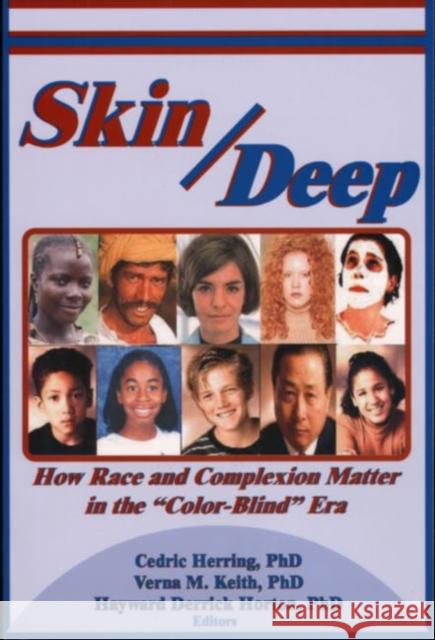Skin Deep : How Race and Complexion Matter in the "Color-Blind" Era » książka
Skin Deep : How Race and Complexion Matter in the "Color-Blind" Era
ISBN-13: 9781929011261 / Angielski / Miękka / 2003 / 200 str.
Why do Latinos with light skin complexions earn more than those with darker complexions? Why do African American women with darker complexions take longer to get married than their lighter counterparts? Why did Michael Jackson become lighter as he became wealthier and O.J. Simpson became darker when he was accused of murder? Why is Halle Berry considered a beautiful sex symbol, while Whoopi Goldberg is not? Skin Deep provides answers to these intriguing questions. It shows that although most white Americans maintain that they do not judge others on the basis of skin color, skin tone remains a determining factor in educational attainment, occupational status, income, and other quality of life indicators. Shattering the myth of the color-blind society, Skin Deep is a revealing examination of the ways skin tone inequality operates in America. The essays in this collection-by some of the nation's leading thinkers on race and colorism-examine these phenomena, asking whether skin tone differentiation is imposed upon communities of color from the outside or is an internally-driven process aided and abetted by community members themselves. The essays also question whether the stratification process is the same for African Americans, Hispanics, and Asian Americans. Skin Deep addresses such issues as the relationship between skin tone and self esteem, marital patterns, interracial relationships, socioeconomic attainment, and family racial identity and composition. The essays in this accessible book also grapple with emerging issues such as biracialism, color-blind racism, and 21st century notions of race in the U.S. and in other countries.











